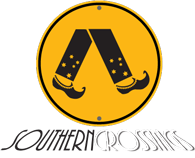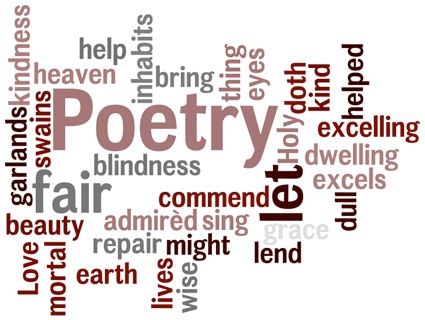By Rashida Murphy
When American genealogist Michael Derrick Hudson decided that he would publish his poetry under a pseudonym, on the surface, it wasn’t such a big deal. After all, writers have been using pseudonyms for centuries. Think the Bronte sisters, Mark Twain, Lewis Carroll and most recently, J.K Rowling’s reincarnation as Robert Galbraith. No, choosing a pseudonym in itself appears to be a personal, innocuous choice. What made Hudson’s choice interesting was that he chose Yi Fen Chou’s name, a woman who used to be his classmate in Fort Wayne, Indiana. Even more offensive to Asian writers was Hudson’s confession that he found it easier to publish his poetry under an assumed Asian name, because of editorial bias towards ‘ethnic-sounding’ names. Hudson claimed he submitted poetry under his own name and had it rejected, but his rate of acceptance escalated rapidly when using the Chinese pseudonym.
I wonder how many Asian women writers shook their collective heads at this incidentally bizarre cultural appropriation. I wonder how many (like me) thought, ‘it’s an advantage to have a name white people can’t pronounce or recognise? When did this change occur and why did no one tell me about it?’
I have spent years answering to variations of my name, from Radish and Radisha to Rashindia and Rashid. I answer with the correct version, of course, politely, especially pointing out the difference between my name and a vegetable or the male equivalent. Patiently, I point out that just as they wouldn’t confuse an Adrian with an Adriana, the ‘a’ at the end of my name signalled my female identity. I don’t especially like my name, because in India, my name is common as muck. I wish I had a different name, something like the Persian Fereshteh which means angel or the Sanskrit Chandini meaning moonlight, but this was the one assigned to me at birth and this is the one I answer to. Or try to, when I recognise it.
I have learned that people don’t like having their mistakes pointed out. I have learned to smile and nod when told I should really have an Australian name, ‘just like the Chinese girls – bet they have weird names too! Why don’t you just choose an easier name? Something that Australians can get?’ Because it’s obviously out of a cussed sense of self-aggrandisement that I hang on to my name. It’s got nothing to do with my mother’s voice saying my name or my sister calling me ‘Rush’ when she watched me dash about after my energetic toddler on her first visit to Perth all those years ago.
When a white male poet chooses a ‘weird’ name to publish under, what does that say about exoticising the ‘other’ for temporary gain? Of course this also raises questions about publishing in general and publishing as an ethnic woman in particular. Until recently I used to send my writing resume to editors with a Mrs before my first name, not because I wanted to assure them I was a respectable married woman, but as a signal that my name was a woman’s name.
I started doing this when an inebriated publisher at a party told me he never responded to submissions with complicated foreign names, you know, like when you don’t know if the sender is a man or a woman. I don’t bother any more. I figured if they want to publish me they can ask me if I am a woman. Presumably Hudson’s publishers were okay with him masquerading as a foreign woman.
Korean poet Franny Choi mentions “the names we speak in the dark to remember our darkness” in her passionate response to Hudson’s theft. It is entirely possible that people reading this might think the Asian writing community has reacted a little too strongly to something that other writers, after all, do all the time. It is also possible that Adam Goodes made too much fuss when booed during an AFL game. Someone I know suggested that Goodes would do well to remember he’s Australian, not Aboriginal. ‘You can’t pick and choose who you want to be when you want to be it. Either you’re Australian, or you’re not. You can’t be both.’
And this, ultimately, is unanswerable. Because we are both. We are Asian, South Asian, Chinese, Aboriginal, ethnic, multi-lingual, multi-religious Australians. Telling us to choose or stop doesn’t help. Stealing the very names you pretend you can’t say doesn’t help. As ethnic names gain currency in the writing and publishing world, is it too much to ask for courtesy instead of jocular approximations of our names, respect instead of appropriation?
Image Source: http://voiceseducation.org/node/139
Rashida Murphy’s stories and poems have been published in international journals and anthologies. She has just been shortlisted for the Dundee International Book Prize for her novel, ‘The Historian’s Daughter’. She has lived in Perth for 30 years, having emigrated from Mumbai in 1985.


Great to read Dr Rashida Murphy’s lucid analysis of the operations of power around names and identity.
Thank you very much Liana.
As someone living with a complicated name in England, I can relate to this post in so many ways. Thank you for sharing with so much passion and clarity, Rashida.
Thank you Gulara. Your posts also resonate with me.
Thank you, Dr Rashida Murphy, for offering your insightful glimpse into the world of identity politics and the ramifications of abuses of power and privilege. Dr Brenda Downing
Thank you, my dear Dr Downing. You know only too well those dire connections between power and privilege.